We love seeing our short-term therapy patients meet their recovery goals and reclaim their independence. That kind of success requires a great deal of courage and willpower from our patients and exceptional skill and insight from our therapists.
It also requires the right tools. If you’re preparing for a short-term therapy stay, you may be wondering about the various types of equipment your therapy might incorporate. So, we decided to compile a brief list of common tools, technologies, and modalities you might use during your journey back to independence!
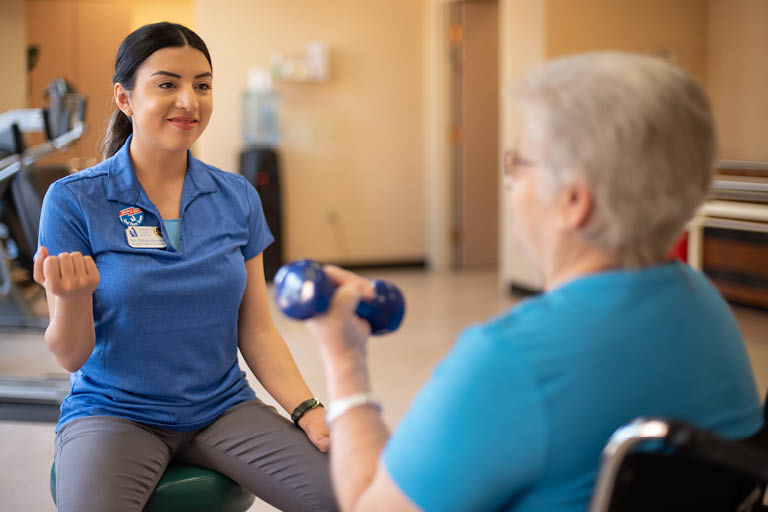
You are probably already familiar with many of these pieces of equipment, as they can be found in most gyms and fitness centers. If you undergo physical or occupational therapy, you will likely encounter exercise balls, gait trainers, grip strengtheners, resistance bands, and light weights. These tools help therapy patients regain strength, improve motor skills, and increase range of motion.
Whether you use some or all these tools depends your personal needs. Your therapist will create for you an individualized program that includes all the tools you need to succeed.
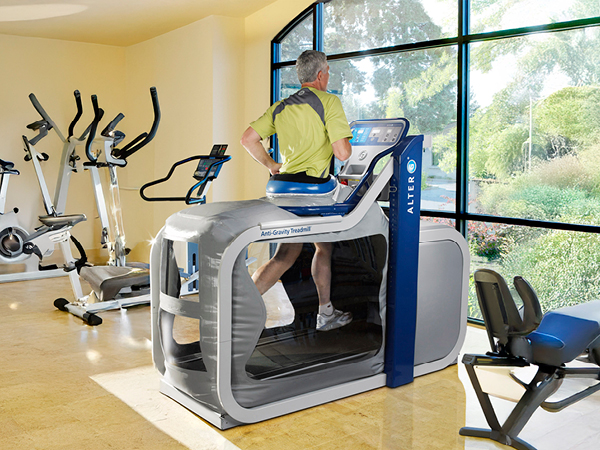
This state-of-the-art piece of equipment employs NASA-developed Differential Air Pressure (DAP) technology to help reduce a patient’s weight impact so they can train with minimal pain and discomfort. The device uses a pressurized air chamber that encompasses a patient’s lower half. As the patient trains, the chamber reduces gravitational load in small increments, giving the patient more buoyancy and support.
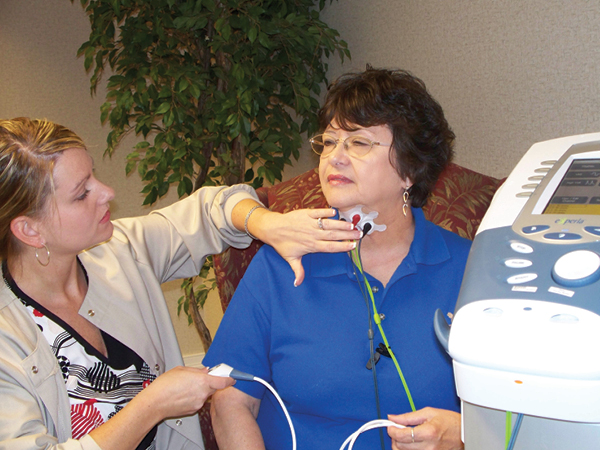
Commonly used in speech therapy, this device is designed to treat dysphagia, or difficulty swallowing. It uses electrical stimulation to activate, strengthen, and retrain the muscles responsible for swallowing. According to studies, 97 percent of patients who use this device regain their functional swallowing ability, and 40 percent regain full swallowing ability.
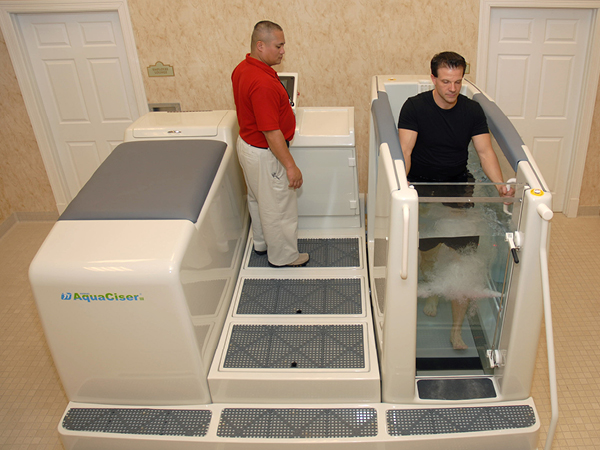
Similar to the Alter-G, the Aquaciser uses water resistance to give patients more support as they rehabilitate, so that they experience lower impact and less pain while building their strength. Water depth and temperature can be adjusted to suit each patient’s needs and preferences.
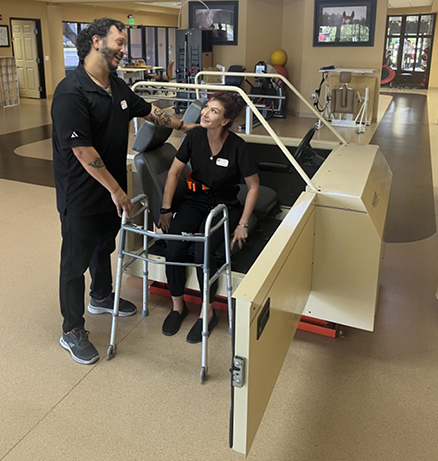
Typically used in occupational therapy, the Trans-Sit car transfer simulator recreates the experience of getting in and out of car. Patients can practice transferring in a stable and comfortable environment instead of an unpredictable and potentially unsafe parking lot. The simulator is adjustable, allowing therapists to customize training sessions to meet the specific needs and abilities of each patient.
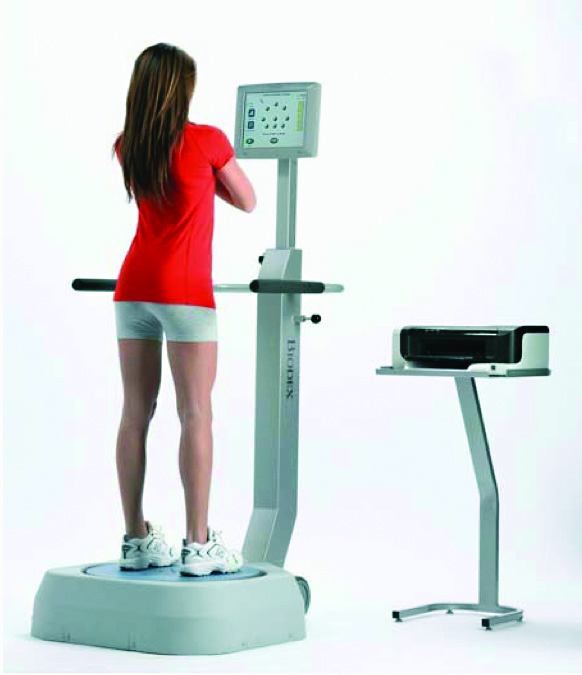
This therapy device is designed to help patients assess and improve their balance. It features a circular, multiaxial platform that can sense a patient’s weight and movements. While holding onto the device’s supportive handles, patients can test their balance, screen for fall risk, and undergo balance training exercises.
Life Care operates or manages more than 200 skilled nursing, rehabilitation, Alzheimer's and senior living campuses in 27 states.
Find a Location